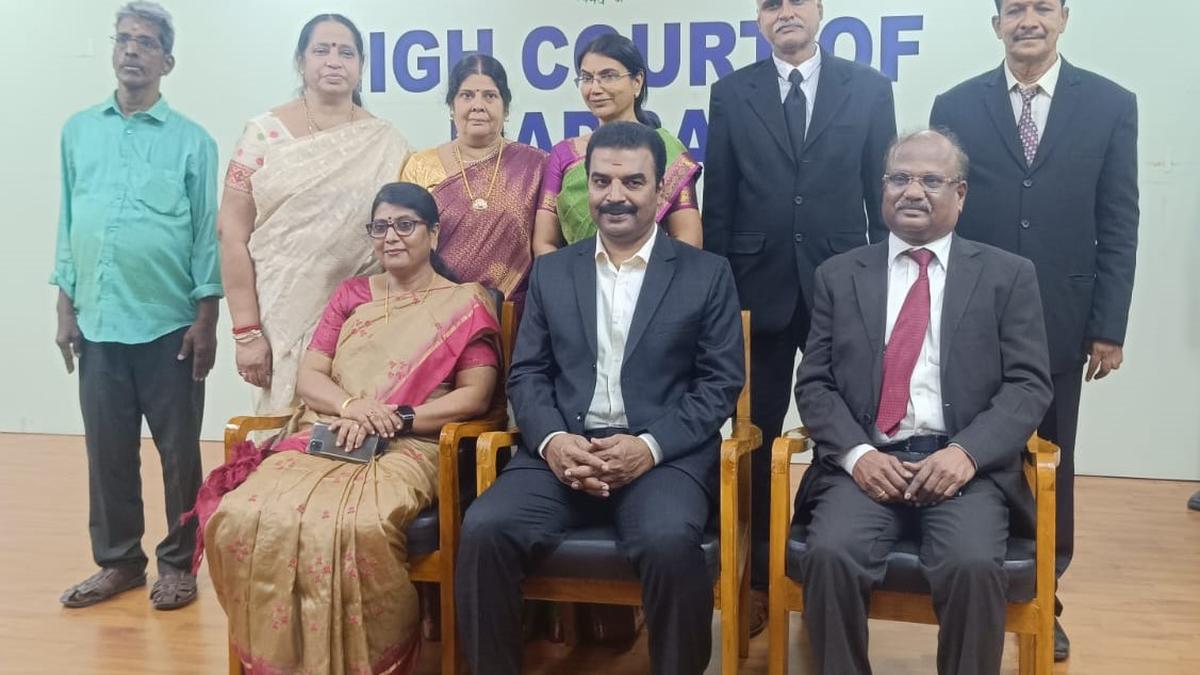
Madras High Court ACJ releases seniority list of 3,621 employees in the court
The Hindu
Madras High Court ACJ releases seniority list, ensures promotions for 3,261 employees, bids adieu to retiring staff.
Madras High Court Acting Chief Justice (ACJ) R. Mahadevan on Friday released a 152-page seniority list of 3,261 employees serving in its principal seat in Chennai as well as the Madurai Bench. The judge said he had passed an administrative order to ensure all eligible employees, beginning from the post of Sweeper to Joint Registrar, get promoted by the end of June.
Addressing a function organised by the Madras High Court and Madurai Bench Officers and Staff Association (MHCMBOSA) to bid adieu to seven retiring employees, the ACJ said, the sanctioned staff strength of the High Court was 3,959 though the working strength was a little less. Since delay in promotions was a major complaint, it had been addressed now, he said.
The ACJ pointed out that two of the retiring employees were being accorded a farewell only after promoting them on the day of their retirement. Expressing happiness over the staff association function being the first official event in the High Court in which he had participated after assuming charge as ACJ last week, he thanked the employees for serving the institution sincerely.
Former High Court judge N. Kirubakaran felicitated the retiring staff. Stating that he began practice as a lawyer only in 1985, the former judge said, two of the retiring employees had got appointed in the High Court in 1984 itself but were retiring only now after putting in more than 40 years of service. He asked the retiring employees to continue to guide the institution.
Justice R.N. Manjula too felicitated the retiring staff and asked them to not consider it as an end of their career but as a beginning of something anew. Deputy Registrar J. Padma, Assistant Registrar K. Balaramachandran, Assistant Registrars M. Lathaa and N. Baskar, Section Officer R. Padmavathy and Duffedars A. Anbazhagan and Bhaiyalal Sharma were felicitated during the event.
MHCMBOSA president A. Raman, secretary V. Venkatasubramanian and treasurer J. Venkataraman participated.

“Writing, in general, is a very solitary process,” says Yauvanika Chopra, Associate Director at The New India Foundation (NIF), which, earlier this year, announced the 12th edition of its NIF Book Fellowships for research and scholarship about Indian history after Independence. While authors, in general, are built for it, it can still get very lonely, says Chopra, pointing out that the fellowship’s community support is as valuable as the monetary benefits it offers. “There is a solid community of NIF fellows, trustees, language experts, jury members, all of whom are incredibly competent,” she says. “They really help make authors feel supported from manuscript to publication, so you never feel like you’re struggling through isolation.”

Several principals of government and private schools in Delhi on Tuesday said the Directorate of Education (DoE) circular from a day earlier, directing schools to conduct classes in ‘hybrid’ mode, had caused confusion regarding day-to-day operations as they did not know how many students would return to school from Wednesday and how would teachers instruct in two modes — online and in person — at once. The DoE circular on Monday had also stated that the option to “exercise online mode of education, wherever available, shall vest with the students and their guardians”. Several schoolteachers also expressed confusion regarding the DoE order. A government schoolteacher said he was unsure of how to cope with the resumption of physical classes, given that the order directing government offices to ensure that 50% of the employees work from home is still in place. On Monday, the Commission for Air Quality Management in the National Capital Region and Adjoining Areas (CAQM) had, on the orders of the Supreme Court, directed schools in Delhi-NCR to shift classes to the hybrid mode, following which the DoE had issued the circular. The court had urged the Centre’s pollution watchdog to consider restarting physical classes due to many students missing out on the mid-day meals and lacking the necessary means to attend classes online. The CAQM had, on November 20, asked schools in Delhi-NCR to shift to the online mode of teaching.









